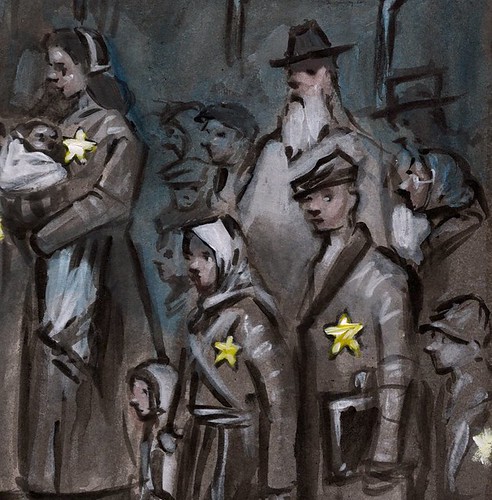
Mark 10:35-45
James and John, the sons of Zebedee, came forward to him and said to him, “Teacher, we want you to do for us whatever we ask of you.” And he said to them, “What is it you want me to do for you?” And they said to him, “Grant us to sit, one at your right hand and one at your left, in your glory.” But Jesus said to them, “You do not know what you are asking. Are you able to drink the cup that I drink, or be baptized with the baptism that I am baptized with?” They replied, “We are able.” Then Jesus said to them, “The cup that I drink you will drink; and with the baptism with which I am baptized, you will be baptized; but to sit at my right hand or at my left is not mine to grant, but it is for those for whom it has been prepared.”
When the ten heard this, they began to be angry with James and John. So Jesus called them and said to them, “You know that among the Gentiles those whom they recognize as their rulers lord it over them, and their great ones are tyrants over them. But it is not so among you; but whoever wishes to become great among you must be your servant, and whoever wishes to be first among you must be slave of all. For the Son of Man came not to be served but to serve, and to give his life a ransom for many.”
(This classic conflict of interests reminded me of the phenomenon of scapegoating and how Jesus used the scapegoating dynamic for human transformation. One could say Jesus is saying to the disciples you , like me will be scapegoated)
When last did you scapegoat someone and feel so much better?
If you are human, it happens quite frequently. At least according to Rene’ Girard, Stanford University professor of sociology who was converted from atheism to Roman Catholicism by his study of human conflict and violence.
Let me illustrate his theory.
“Picture two young children playing happily, a pile of toys beside them. The older child pulls a G.I. Joe from the pile and immediately, his younger brother cries out, “No, my toy,” and grabs it.
The older child, who was not very interested in the toy when he picked it up, now conceives a passionate need for it and attempts to get it back. Soon a full fight ensues, with the toy forgotten and the two boys busy pummelling each other.
As the fight intensifies, the overweight child next door wanders into their yard, looking for someone to play with. At that point, one of the two rivals looks up and says, “Oh, there’s old fat butt!” “Yeah,” says his brother. “Big fat butt!”
The two, having forgotten the toy, now forget their fight and chase the other child back home. Harmony has been restored between the two brothers, though the neighbour is back indoors crying.”
There are two dynamics significant to this story.
The first is how imitative desire causes conflict. GI Joe increases in value because the other brother also wants it.
The second point is that finding a scapegoat helps reduce the conflict between the brothers.
If you have ever tried to calm domestic violence you will have experienced this when the fighting couple unite, and turn on you!
In these simple dynamics Girard explains the origin and process of all human conflict.
Girard’s research shows that whenever tension exists in societies, the community in the tension find release through some process of scapegoating.
According to Girard, this scapegoating has always been part of human life.
It is the origin of sacrifice.
The killing of an outsider, makes the community in conflict feel better.
But there remains an aftermath of guilt. “How could we have done that?”
To go back to the two boys. Imagine that, having chased off Fat-Butt, the brothers feel remorse about their bullying. One of them says, “You know bro, we had to do that because Dad says, ‘Blood is thicker than water’.”
Dad has become the authorization for their violence.
Girard discovered that religion plays a role in violence by encouraging and condoning scapegoating. Dad/God demanded the scapegoat.
The community that has sacrificed their child, their vestal virgin, their ox, their prophet, at some point feels remorse.
The priest then says, “Relax, God demanded it that way. We are merely being obedient.”
Girard’s conversion came when he saw how Jesus accepted being scapegoated, but for the first time in history, exposed the process to the perpetrators.
“Father forgive them…”
So next time we use our religion to scapegoat someone, let’s ask ourselves, “Is this truly the Spirit?”

Thoughtprovoking. Thank you.